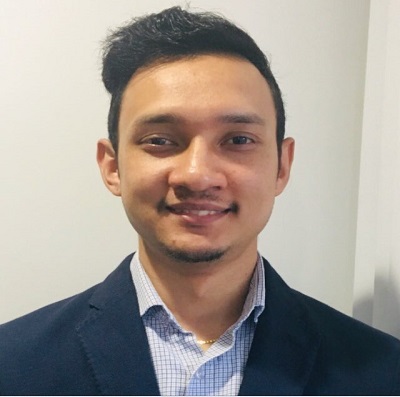Convocation Spotlight: Ishwar Tiwari
29 May 2024

Ishwar Tiwari
A fascination with how diseases spread and impact populations initially drew Ishwar Tiwari to epidemiology, and the new PhD graduate at the University of Alberta’s School of Public Health has found great fulfilment throughout his degree in analyzing patterns, identifying risk factors and developing strategies to potentially mitigate public health crises.
Here, Tiwari discusses the challenges of conducting large-scale research projects, the joy he found in interdisciplinary work and his plans for his career.
What accomplishment are you most proud of from your time in the program?
The accomplishment I am most proud of is successfully defending my dissertation. This project involved extensive fieldwork and data analysis, contributing to scientific knowledge and practical implications for public health policies. Receiving positive feedback from both my committee and external examiners was incredibly rewarding. During the program, I also published nine papers (four of them as the first author) in various peer-reviewed journals.
What was the biggest challenge you faced?
My biggest challenge was getting the required data for my project to examine the impacts of weather factors and air pollution on perinatal health outcomes and childhood infectious diseases in the Kavre district of Nepal. To acquire the information, we creatively used multiple databases at different levels and linked them together. Balancing the depth of research needed with time constraints and maintaining accuracy in my findings was particularly daunting. However, we overcame this challenge through meticulous planning, continuous learning and seeking guidance from supervisors and colleagues, ultimately leading to a successful and impactful research outcome.
How did you stay motivated and who helped you keep going when things got tough?
Staying motivated during my PhD journey was challenging at times, but my passion for the subject matter and the potential impact of my work kept me going. My primary supervisor, Dr. Shelby Yamamoto, was a constant source of support and guidance, providing valuable insights and encouragement. My family and friends also offered emotional support and helped me maintain a healthy work-life balance.
What advice would you give to a student thinking of studying epidemiology?
I would advise students to cultivate a strong foundation in public health and statistical tools. Be prepared for rigorous but rewarding work. Engage in networking and seek mentorship early on. Stay curious, as the field is ever-evolving, and your adaptability will be critical to your success.
What have you learned about yourself?
I have learned that perseverance and adaptability are among my greatest strengths. I have also developed a deeper appreciation for collaborative work and interdisciplinary approaches. Moving forward, I will leverage these strengths in my career by remaining resilient in the face of challenges and fostering collaborative environments in my future projects.
What comes next for you?
I plan to continue my career as an epidemiologist. I aim to work with the Government of Alberta, public health organizations and academic institutions to plan and conduct research, contributing to the development of effective health policies and interventions. Additionally, I want to mentor the next generation of epidemiologists, sharing my experiences and insights to help them navigate their academic and professional journeys.